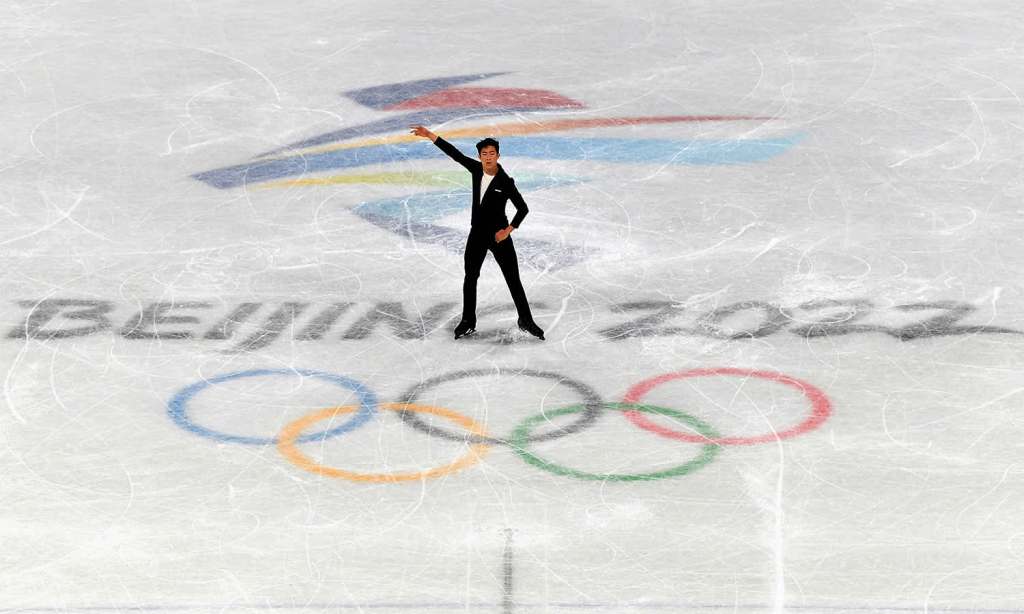Kicking off this evening, the Winter Olympics, much like their warmer twin, are supposed to be a celebration of sporting achievement free from the day-to-day gripes of political conflict.
Instead, the 2022 Beijing Winter Olympics will go ahead under a cloud of controversy as 18 nations move to diplomatically boycott the event.
While politics are supposed to be removed from the event, as is the spirit of the Olympics and part of the guidelines of the International Olympics Committee, in reality, politics have never been far from the surface.
Some 60,000 athletes, officials, and volunteers are expected for the events, which will take place in “closed loop” system not unlike that of the Summer Games which saw athletes unable to mix with the general population to avoid the spread of COVID-19.
While the games will go ahead with crowds, only about 30% of stadium and event capacity will be filled, with no international fans allowed in attendance. All of those attending will have to undergo strict COVID testing. However, the fans won’t be the only ones not getting in on the action, as the boycott grips the event and threatens to turn it into an international rebuke of China.
Here’s why this year’s Winter Olympics is so controversial this time around.
Who Is Boycotting the Olympics and Why?
The US was the first nation to make noise about a boycott when China was selected as the host nation for the games. Others, like the UK, have also threatened a boycott, but it’s only been in recent months where those actions have actually proven not to be just empty words.
The US, the UK, Canada, the Czech Republic, Sweden, Switzerland, Lithuania, Kosovo, Denmark, Belgium, Estonia, and, yes, Australia too, will not be sending any ministers or officials to the country to support the Olympic effort. Athletes from these nations will still compete, but there will be no political representation of their countries there. Japan too has said that it will not send any government officials, however they will be sending Olympic officials.
India has also recently announced that they too will be diplomatically boycotting the event, in part due to the choice of a Chinese soldier involved in a skirmish on the Indian-Chinese border in 2020 where 20 Indian solider were killed.
New Zealand, Austria, Slovenia, Sweden, and The Netherlands will also not send government representatives to The Games, however they claim their decisions are based on the COVID risk.
Russian President Vladimir Putin has said that he will attend the games, despite Russia being banned from competing in international sporting events until 2024.
It’s a fair number of countries to skip the Games. The last time something like this happened was in 1980 where almost half of the nations invited to participate in the Olympics either didn’t attend at all or modified their attendance in some way. This was in protest of the Soviet Union, the host nation of the 1980 Olympics, and their recent invasion of Afghanistan. Boycotts have also occurred at the Melbourne 1956 Olympics, the 1976 Olympics, as well as the 1984 and 1988 Games.
Mainly the issues stem from China’s treatment of the Uyghur Muslim population in Xingjian province where members of this minority ethnic group are heavily policed, denied their human rights, and placed in education and labour camps. The US has made this the focus of their boycott.
Human rights groups believe that more than a million Uygurs have been detained in these camps over the last few years, with allegations of torture and sexual abuse rife.
The UK cites these ongoing policies, as well as China’s stance on Tibet and Taiwan as reasons for not going. Other countries also cite China’s growing influence and ambition in dominating surrounding nations, with the repression of democracy in Hong Kong a major focus for many countries and human rights groups.
German ministers boycotting the event highlight the treatment of Chinese tennis star Peng Shuai as their reason for not attending, though the country itself is not officially boycotting the event. Peng disappeared for three weeks in 2021 after making allegations of sexual assault against the former Vice-Premier of China.
France has spoken against the boycott, with President Macron saying that The Olympics shouldn’t be politicised, “especially if it is to take steps that are insignificant and symbolic.”
It’s not just countries either. Some athletes too, uncomfortable with China’s foreign and domestic policies, have said that they will not attend the opening and closing ceremonies in solidarity with oppressed populations in the country.
Many however are not speaking up about their avoidance of the events, at least while in the country, due to fears that the state may take action against them while they are there.
How Has China Responded to the Boycott?
Generally? Not well. China is famously adverse to criticism, both internal and external, and works hard to keep its domestic population in line, punishing those who speak out against the government. This boycott has therefore been a diplomatic nightmare for the country, although they are trying not to show it.
The Chinese government has denied all allegations made about the disappearance of Peng while also denying any wrong doing in the case of the Uyghurs.
They have most directly called out the US for their boycott of the games, saying that the move is a “self-directed political farce.”
“The US just wants to politicise sports, create divisions and provoke confrontation,” said a statement by the Spokesperson of the Chinese Mission to the UN.
“The success of the Games does not rely on the attendance of a handful of countries’ government officials.”
More recently, however, Wang Wenbin, a spokesperson at the Chinese foreign ministry, has said that countries are using the Olympic platform for “political manipulation”.
China has also since warned that countries participating in the boycott “will pay the price for their mistaken acts”.
Read more stories from The Latch and subscribe to our email newsletter.







